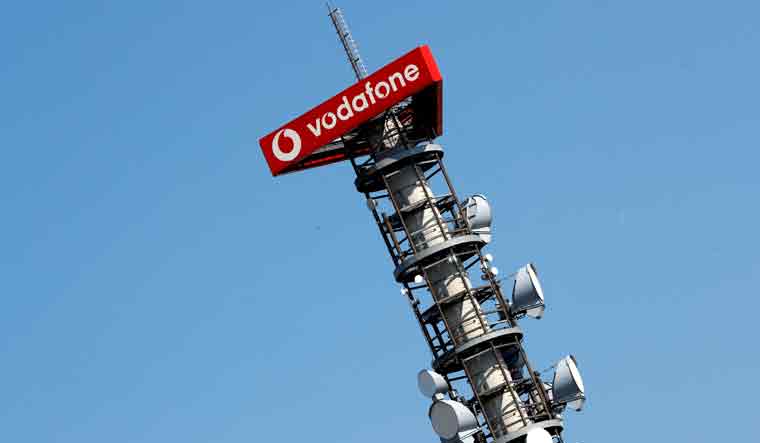Some mutual fund houses that have invested in the debt of Vodafone Idea have now started to segregate these investments into a separate portfolio, what is typically called side pocketing, after credit rating agencies downgraded the telecom company’s debt amid growing concerns over its ability to repay over Rs 50,000 crore in adjusted gross revenue (AGR) to the government.
The Supreme Court came down heavily on the telecom companies last week for failing to comply with its earlier order on AGR payments and ordered these companies to pay their dues before the next court hearing. Vodafone Idea owes more than Rs 50,000 crore in AGR dues to the DoT and the company has said that unless there is some support from the government, it may not be possible to continue as a going concern.
UTI Mutual Fund proposes to create a segregated portfolio of Vodafone Idea’s debt securities in UTI Credit Risk Fund, UTI Bond Fund, UTI Regular Savings Fund, UTI Dynamic Bond Fund and UTI Medium Term Fund, effective February 17. The fund house has an exposure worth Rs 186 crore to Vodafone Idea debt across these five schemes.
Similarly, Nippon India MF will create a segregated portfolio of debt securities of Vodafone Idea in Nippon India Strategic Debt Fund, Nippon India Credit Risk Fund and Nippon India Hybrid Bond Fund. The fund house has an exposure of around Rs 227 crore to Vodafone Idea’s debt through these schemes.
“The board of directors of Nippon Life India Trustee Limited have approved the creation of segregated portfolio of securities of Vodafone Idea held in the schemes with effect from February 17, to protect the interest of the investors,” it said.
Franklin Templeton Mutual Fund, too, had earlier in January segregated the portfolio of Vodafone Idea’s debt securities in some of its funds.
What happens when fund houses segregate their portfolio?
All existing investors in the concerned mutual fund schemes as on the day of the creation of the segregated portfolio will be allotted equal number of units in the segregated portfolio as held in the main portfolio. No redemption or subscription is allowed in the segregated portfolio.
As and when the fund house recovers any money from the segregated portfolio, it will be immediately distributed to the investors in proportion to their holding in the segregated portfolio.
Investors redeeming their mutual fund units will get proceeds based on the NAV of the main portfolio, while they will continue to hold units of the segregated portfolio. New investors subscribing to the particular scheme will only be allotted units in the main portfolio.
Furthermore, the fund houses will also enable listing of the units of the segregated portfolio on the stock exchange within 10 working days of the creation of the segregated portfolio and enable transfer of such units on receipt of transfer requests.
The decision by Nippon and UTI MF to side pocket the exposure to the loss-making telecom operator comes after CARE Ratings downgraded Vodafone Idea’s debt instruments to BB- from BBB-, under credit watch with negative implications. Earlier, another ratings agency CRISIL had downgraded the company’s debt to BB from BBB-.
CARE Ratings said the ratings downgrade took into account “significant erosion in the overall risk profile of the company” while taking into cognizance of the financial impact of no relief granted by Supreme Court to telecom companies’ plea seeking new schedule of AGR payments and significant third quarter loss.
“The ratings continue to be further constrained due to the elevated debt level, declining trend of subscriber base, technology obsolescence risk and prevalent intense competition in Indian telecom industry,” said CARE.
On Monday, Vodafone Idea paid Rs 2,500 crore as part of its AGR dues to the DoT and will pay another Rs 1,000 crore by the end of the week. The board will take further stock of the situation to see how further additional payments can be made, the company said.
also read
- Vodafone Idea shares jump nearly 8% a day after raising Rs 18,000 crore in FPO
- Vodafone Idea FPO open for subscription. Should you invest?
- Ahead of FPO, Vodafone Idea garners Rs 5,400 crore from anchor investors
- VI to launch 5G in 6-9 months post Rs 18,000 crore FPO as it looks to catch up with Jio, Airtel
Vodafone Idea reported a net loss of Rs 6,439 crore in the third quarter on consolidated revenue of Rs 11,089 crore. The company has a gross debt of Rs 1.2 lakh crore, according to Motilal Oswal Financial Services. “Vodafone Idea’s stressed balance sheet will make it difficult to pay such a large magnitude of liability in such a short period,” Aliasgar Shakir, analyst at Motilal Oswal said on the company’s ability to pay the AGR dues.
Research analysts at ICICI Securities have said there is a rising probability of India becoming a 'two private player' market, although there is some scope for Vodafone Idea to continue if government intervenes. “We believe the company would make partial payment, and we see Vodafone Idea’s going concern is dependent on government intervention on concession in AGR case,” said the analysts.
CARE Ratings said any further delay in the monetisation of its tower business housed in Indus Towers Limited and fibre assets, are likely to put further strain on the liquidity profile. Continuity of support of extended by Vodafone Group as well as Aditya Birla Group to Vodafone Idea will continue to be critical and key moniterable, it added.



